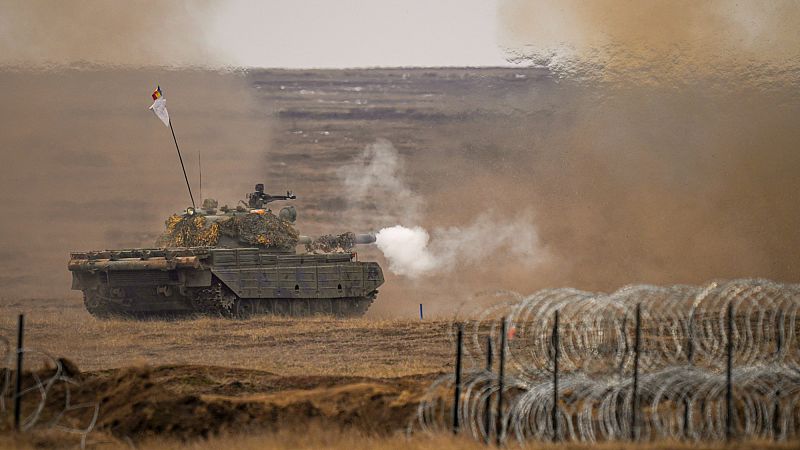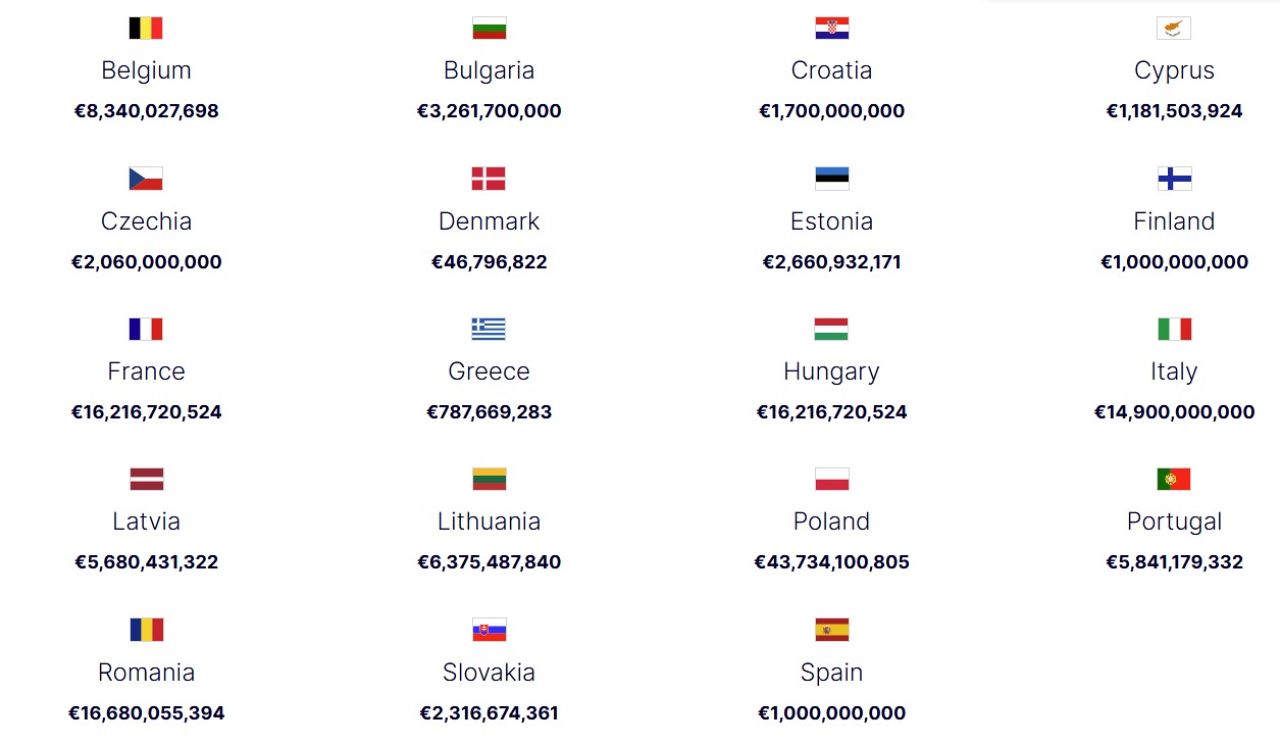'Big step forward': Disbursement of EU's €150bn defence loan scheme to start in early 2026

The European Commission estimates it will be able to disburse the first funds under its €150 billion defence loan scheme to allow member states to jointly procure European-made military equipment in the first quarter of next year.
Commissioners on Tuesday adopted the tentative allocation for the so-called SAFE (Security Action for Europe) loans to the 19 member states that requested access to the programme in what Andrius Kubilius, the Commissioner for Defence and Space, described as a "big step forward for our defence readiness".
Requests by just five member states amount to more than two-thirds of the total of assistance available with Poland set to receive €43.7 billion alone. It is followed by Romania (€16.7bn), France and Hungary (each set to receive €16.2bn), and Italy (€14.9bn).
Member states that requested the assistance now have until 30 November to submit detailed national investment plans that the Commission will assess before submitting to the European Council for approval. The goal, Kubilius said, is to sign the loan agreements in the first quarter of next year with the payments to "follow immediately".
"We have no time for the luxury of incremental improvement" in defence readiness, Kubilius added.
SAFE is meant to boost the procurement of priority defence products including ammunition and missiles, artillery systems, drones and anti-drone systems as well as air and missile defence systems, critical infrastructure protection, space asset protection, cyber, AI and electronic warfare.
Another important criterion is that it must be European-made with no more than 35% of component costs originating from outside the EU, EEA-EFTA, or Ukraine.
Some of the most sensitive equipment such as more advanced drones, and air and missile defence systems among others, have stricter eligibility conditions. European manufacturers must, for instance, have design authority over them, meaning they must be able to modify the equipment to ensure its use cannot be blocked by a non-EU entity.
Third countries that have a Security and Defence Partnership with the EU can increase their participation to the same level as EU member states provided they strike a second bilateral agreement with the bloc. Canada and the UK have said they aim to strike such deals quickly with EU ambassadors set to discuss the negotiation framework this week.
Member states that requested money had to submit minimum and maximum requests with the final allocation landing somewhat in the middle for those that requested big amounts, Kubilius said. The Commission will meanwhile also look into the fiscal space available for each member state when it makes its decision late in the year.
The scheme is advantageous to member states whose credit rating is not as good as the Commission's, meaning they will secure better rates. Germany, for instance, did not ask for any SAFE funds.
But Kubilius stressed that some of the member states that did not request loans have indicated they will use the mechanism to purchase equipment as it would likely allow them to secure better prices.
The Commissioner also said the EU executive is looking into additional funding mechanisms for defence that should be outlined in a Roadmap to Readiness 2030 to be presented to member states in October.
Today


